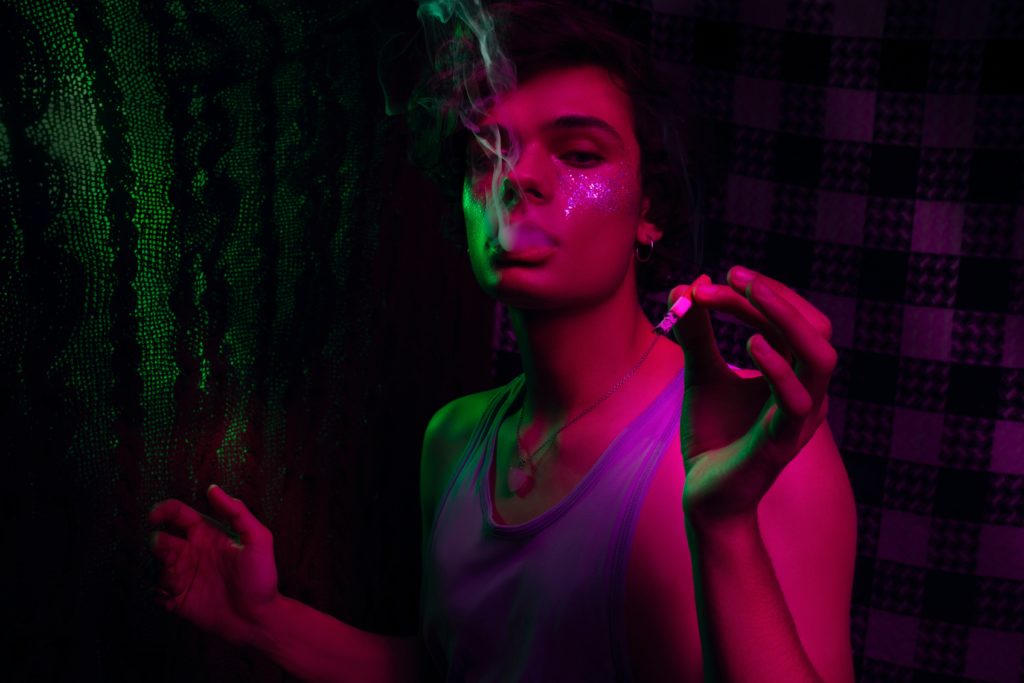Annie Koop
Does HBO’s Euphoria have a dangerous effect on teen viewers?
If you haven’t seen Euphoria, there’s a good chance you’ve heard a lot about it on social media. The wildly popular HBO series is currently in its second season, with a 200% increase in viewers since season one. The show has since created quite the buzz because of its controversial nature and daring creative decisions.
Euphoria focuses on several different characters’ personal lives, most of them navigating American high school and struggling with various traumatic events. One of the characters is an underage cam-girl. One is a violent father of three who regularly cheats on his devoted wife. One is a twelve-year-old drug dealer who, in the first episode of season two, kills a grown man with a hammer.
Yes, you read that right.
To call Euphoria dramatic would be a gross understatement, and it’s no wonder the series has caused such an uproar on social media. In addition the shocking storylines, there have been several other complaints from audiences. Here are some examples.
The explicit depiction of teen intimacy and sex
On one hand, television depicting underage characters should aim to relate to the audience. Many teens are sexually active, so the discussion of sexuality in TV and film isn’t necessarily harmful. It’s completely dependent on how sensitive subjects like that are handled in terms of the writing, cinematography, directing, etc. When it comes to Euphoria, most aren’t in favour of the depiction because most of the on-screen nudity is irrelevant to the plot. It feels unnecessary at times. For one of the teen characters, Cassie (Sydney Sweeney), sexuality is vital to the subplot. She’s a relatable character with substantial depth, and without giving anything away, she learns some essential lessons surrounding sex. Because of this, several scenes regarding sexuality are helpful to her development.
However, more than a few of Cassie’s scenes feature explicit nudity that her storyline could easily forego. The lack of necessity is what causes fans to question the series’ creator, writer and director Sam Levinson. Whether Levinson had motives outside of his artistic perspective, we won’t ever know for sure, and the variety in opinion regarding the filmmaker is very black-and-white.
At least one #Euphoria sex scene involving Barbie Ferreira was cut from final version of an episode this season, @TheDailyBeast reports.
The news comes after Minka Kelly, Sydney Sweeney, Chloe Cherry and Martha Kelly discussed their discomfort shooting certain nude scenes. pic.twitter.com/Q59rZ5htJO
— Film Cult 📽 (@FilmCult) February 20, 2022
The raw portrayal of substance abuse
This issue is most prevalent in Euphoria‘s lead character and narrator, Rue (Zendaya). Rue is a 17-year-old addict whose dependency on drugs causes her to hurt those closest to her time and time again. At times, the series almost seems to be encouraging Rue as she seeks out harmful substances, unable to function without them. Her desperation is sometimes portrayed in a comedic way, which, to many, is an insensitive strategy due to addiction’s wide relatability. Luckily, Levinson doesn’t always approach substance abuse lightly; Rue also faces several severe consequences including losing her girlfriend, Jules (Hunter Schafer) and some of her closest friends. It’s up to viewers to determine if Euphoria offers a valid perspective on addiction.
euphoria is genuinely triggering. people don’t realize how easy you can slip into addiction. Bars are basically harm reduction centers. If you drink you regularly ingest a substance, much like someone who does any other type of drug
— sarah schauer 🦂 (@sarahschauer) February 14, 2022
The viewer focus on Euphoria‘s ‘aesthetic’
Last year, social media platforms like TikTok saw an astounding spike in account creation. This was of course due to the global pandemic forcing young teens to stay inside, finding a new use for their time. Because of TikTok and other platforms’ popularity in 2020, trending on social media became extremely profitable for businesses, studios, and celebrities alike. Euphoria, having aired in 2019, became a popular TikTok trend by accident. HBO wasn’t pushing the series’ publicity for a new season, and yet, because the show resonated with teenage users, ‘hype’ for the show spread quickly anyway. Popular trends for Euphoria ranged from cinematic videos to comedy sketches to character impersonations and everything in-between.
Even though the trends were great for publicity, the series’ influence on its newfound young audience quickly became almost dangerous. Suddenly, a show created to tell stories of addiction and trauma was being seen as an ‘aesthetic’. There’s nothing wrong with viewers showing love for the costumes, cinematography, and makeup, all of which remain positive trends in 2022. However, when it becomes ‘cool’ to throw Euphoria-themed parties providing alcohol to underage attendees, the series’ influence turns from appreciative to toxic. It’s safe to assume this particular impact of the show is unintentional, but even still, the conversation is necessary.
yall made euphoria trend so much it got its own category thats so embarrassing pic.twitter.com/o0aLQNkiAw
— jess (@ferrnijess) February 17, 2022
Overall…
The influence that the series has over young people goes beyond the examples above. While I’ve highlighted the negative impacts of the show, it’s important to remember that its purpose is to shed light on troubling topics that film usually shies away from. Many have found relatability in the storyline and have said that the show makes their struggles feel valid. This was a goal of Levinson’s while first creating Euphoria, so whilst it certainly has its issues, it’s also created a genuine outlet for those who need it.
Opinions on the topic are highly varied. Since film is entirely subjective, the conclusion is left up to individual viewers. Should the controversial series change its depiction of heavier topics?
The second season of Euphoria is available to watch in the UK on NOWTV.
Featured image courtesy of boris krupnik on Unsplash. No changes were made to this image. Image license found here.

